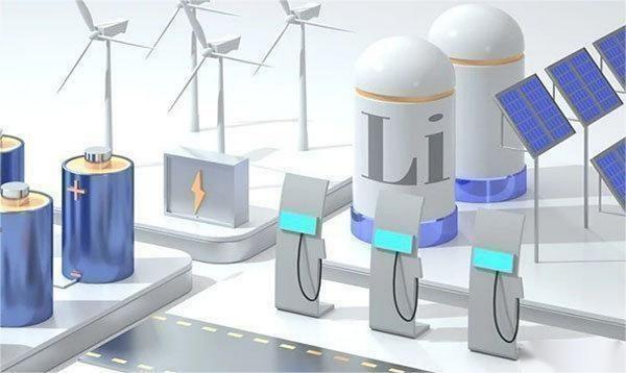
Nov . 27, 2024 20:03 Back to list
China's Growing Influence in Lithium Phosphate Battery Technology and Market Development
China's Lithium Iron Phosphate Battery A Key Player in the Energy Transition
As the world seeks sustainable alternatives to combat climate change, energy storage solutions have become a focal point. Among these solutions, lithium iron phosphate (LiFePO4) batteries have emerged as a prominent technology, particularly in China, which has solidified its position as a powerhouse in battery production. This article explores the significance of lithium iron phosphate batteries in China's energy landscape, their advantages, and the challenges that lie ahead.
The Rise of Lithium Iron Phosphate Batteries
Lithium iron phosphate batteries were developed in the 1990s and have since gained traction due to their safety, thermal stability, and long cycle life. Unlike traditional lithium-ion batteries that utilize cobalt or nickel, LiFePO4 batteries use iron phosphate as a cathode material, making them more environmentally friendly and cost-effective. China has rapidly adopted this technology, integrating it into various sectors, including electric vehicles (EVs), renewable energy storage, and consumer electronics.
A Catalyst for Electric Vehicles
The surge in electric vehicle production has further accelerated the demand for lithium iron phosphate batteries. Major Chinese automakers like BYD and NIO have incorporated these batteries into their electric vehicles, capitalizing on their lower manufacturing costs and enhanced safety features. Compared to their nickel-cobalt counterparts, LiFePO4 batteries are less prone to overheating and thermal runaway, making them an ideal choice for large-scale applications like EVs.
The Chinese government has also played a significant role in promoting the adoption of electric vehicles. With policies favoring the use of lithium iron phosphate batteries, such as subsidies and tax incentives for manufacturers and buyers, the market has expanded rapidly. By 2022, electric vehicles powered by LiFePO4 batteries accounted for a considerable portion of the total EV sales in China, demonstrating the technology's growing influence.
Energy Storage Solutions
Beyond the automotive industry, lithium iron phosphate batteries are being utilized in renewable energy storage systems. As renewable energy sources like solar and wind power gain prominence, effective energy storage solutions become crucial to manage supply and demand fluctuations. LiFePO4 batteries can efficiently store excess energy generated during peak production periods for later use, contributing to a more resilient energy grid.
china lithium phosphate battery

China's commitment to achieving carbon neutrality by 2060 has further spurred investments in battery technology and energy storage solutions. As the country invests heavily in solar and wind energy, the implementation of lithium iron phosphate batteries in grid systems will play a vital role in ensuring a stable and sustainable energy supply.
Advantages of Lithium Iron Phosphate Batteries
The popularity of lithium iron phosphate batteries can be attributed to several advantages. Firstly, their thermal stability ensures safety, making them less hazardous than other lithium-ion batteries. Secondly, they boast a longer lifecycle, with the ability to withstand more charge and discharge cycles without significant degradation in performance. This feature translates into lower costs over time, making them an attractive option for both consumers and manufacturers.
Additionally, the abundance of iron and phosphate in the Earth's crust makes lithium iron phosphate batteries less reliant on rare materials, reducing supply chain vulnerabilities and manufacturing costs. As the world grapples with the ethical and environmental concerns surrounding mining for cobalt and nickel, LiFePO4 batteries present a more sustainable solution.
Challenges Ahead
Despite their numerous advantages, lithium iron phosphate batteries face challenges that could hinder their widespread adoption. One significant drawback is their lower energy density compared to traditional lithium-ion batteries, which can limit their range in electric vehicles. Additionally, while the manufacturing costs have decreased, further developments in technology and production processes are necessary to enhance performance and competitiveness.
Furthermore, as the global demand for batteries continues to rise, ensuring a sustainable supply chain for raw materials will be critical. China must navigate potential trade issues and environmental concerns related to mining practices to maintain its leadership in the battery industry.
Conclusion
In conclusion, China's lithium iron phosphate batteries represent a crucial component in the shift towards a sustainable energy future. With their safety, cost-effectiveness, and long lifecycle, they are well-positioned to support electrification and energy storage initiatives in various sectors. However, addressing the challenges of energy density and supply chain sustainability will be essential for realizing their full potential. As the world continues to embrace greener technologies, China’s role in the lithium iron phosphate battery market will undoubtedly shape the future of energy storage and electric mobility.
-
Self-Cooling-PW-164: Advanced Automatic Cooling Motor Technology
NewsJul.20,2025
-
Energy Management System Optimize Energy Use & Save Costs
NewsJul.20,2025
-
High-Efficiency Microinverter Solutions Top Microinverter Suppliers & Exporters
NewsJul.08,2025
-
Top Energy Storage Companies Leading Utility Scale & Long Duration Solutions
NewsJul.08,2025
-
Charge Point Charger - Reliable Charging Solutions for EVs Leading Charge Point Charger Company & Exporters
NewsJul.07,2025
-
Types of Battery Energy Storage Systems - Leading Products & Exporters Company
NewsJul.07,2025























